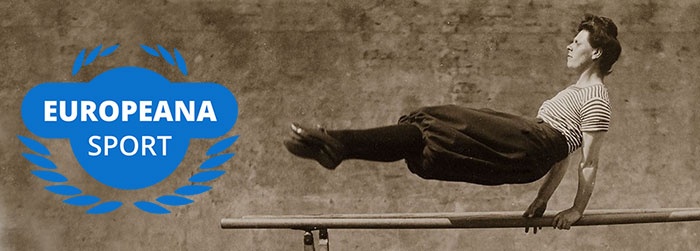Despite their subsequent professionalisation, most sports originate from a popular practice or hobby. However, amateur sports organisations often have difficulties in funding their activities. Thus, they sometimes try imaginative solutions to achieve their main goal of staying afloat.
This is the case for GEiEG, a rugby team from a sports association in Girona, who managed to fund themselves with the agreement of the artist Salvador Dalí.
Rugby arrived in Catalonia in 1921, but it took a long time to become a popular sport practiced in Girona.
A group of interested young people - who had discovered rugby while studying abroad - decided to start training at Devesa field in the city centre.
The project grew and, on 11 April 1971, the first Girona rugby team was presented - part of GEiEG (Grup Excursionista i Esportiu Gironí) association, which had been founded in 1919. In just seven years, the team played in four different leagues, reaching the top category by the 1978-1979 season.
In 1978, a board meeting of the team discussed the need to raise funding. Different proposals were considered, including a tour of different European countries to play friendly matches.
One proposal was to visit the painter Salvador Dalí at his home near Girona, in the fishing village of Portlligat (Cadaqués), and use his celebrity to help with fundraising.
Dalí lived in Portlligat, in the middle of the Cap de Creus Natural Park, from 1930 to 1982. He stayed there for only a few months a year with his wife and muse Gala. There, he had his studio - a sanctuary of creation - and also received numerous visitors and participated in different happenings and performances.
At the end of 1978, a representation of the GEiEG rugby team travelled to Portlligat to deliver Dalí a rugby ball with the signatures of all the team players.
After being received by Gala, they spoke to the painter, who was interested in the evolution of rugby in Girona. They handed him the ball - a legendary Adidas Wallaby, brown with black tips. The ball today is still preserved in the Dalí house museum. In exchange for the gift, Dalí gave them a ball with his signature.
In early January 1979, two rugby managers travelled to Strasbourg to meet with Adidas. They wanted to exchange the ball signed by Dalí for team clothing and additional supporting material and money for a European tour.
When Dalí heard the news, he was reluctant as he did not want the ball to be used by Adidas for commercial or advertising purposes. So, it was also necessary to negotiate with him. Finally, it was agreed that the ball should only be displayed in the company's shop windows.
This is how on 29 September 1979, at Perpignan railway station, representatives of the GEiEG club led by the president of the association, Lluís Bachs, handed the ball to Adidas.
In return, the company undertook to deliver sports equipment for three teams for two years and 10,000 French francs, which were eventually used to fund the rugby team instead of the European tour.
Thanks to the ball signed by Salvador Dalí, the organisation obtained not only funding, but also media coverage for a sport that had not been known much in Girona.
The following year, they tried the same fundraising ploy with another international Catalan, the musician and illustrator Xavier Cugat who was based in the United States.
Born in Girona in 1900, he was a versatile artist, considered to be the leading broadcaster of Latin music in the United States. He made more than fifty films, dozens of records and numerous performances on television and radio.
In summer 1979, Cugat was in Girona attending the opening of an exhibition of his work at the Fontana d’Or gallery. That’s when a group of GEiEG representatives sent him a ball signed by the entire team, and he responded by stamping his signature and a caricature on another ball. However, unlike Dalí’s ball, Xavier Cugat’s ball is still in the hands of the sports association.
Share your sport story
Can you help us to tell the story of sport in Europe in the past and the present?
We invite you to tell us about your sport experiences through objects like photographs, memorabilia, equipment or prizes.
Share your story →
This blog is part of the Europeana Sport project which showcases cultural treasures relating to sporting heritage in Europe.

